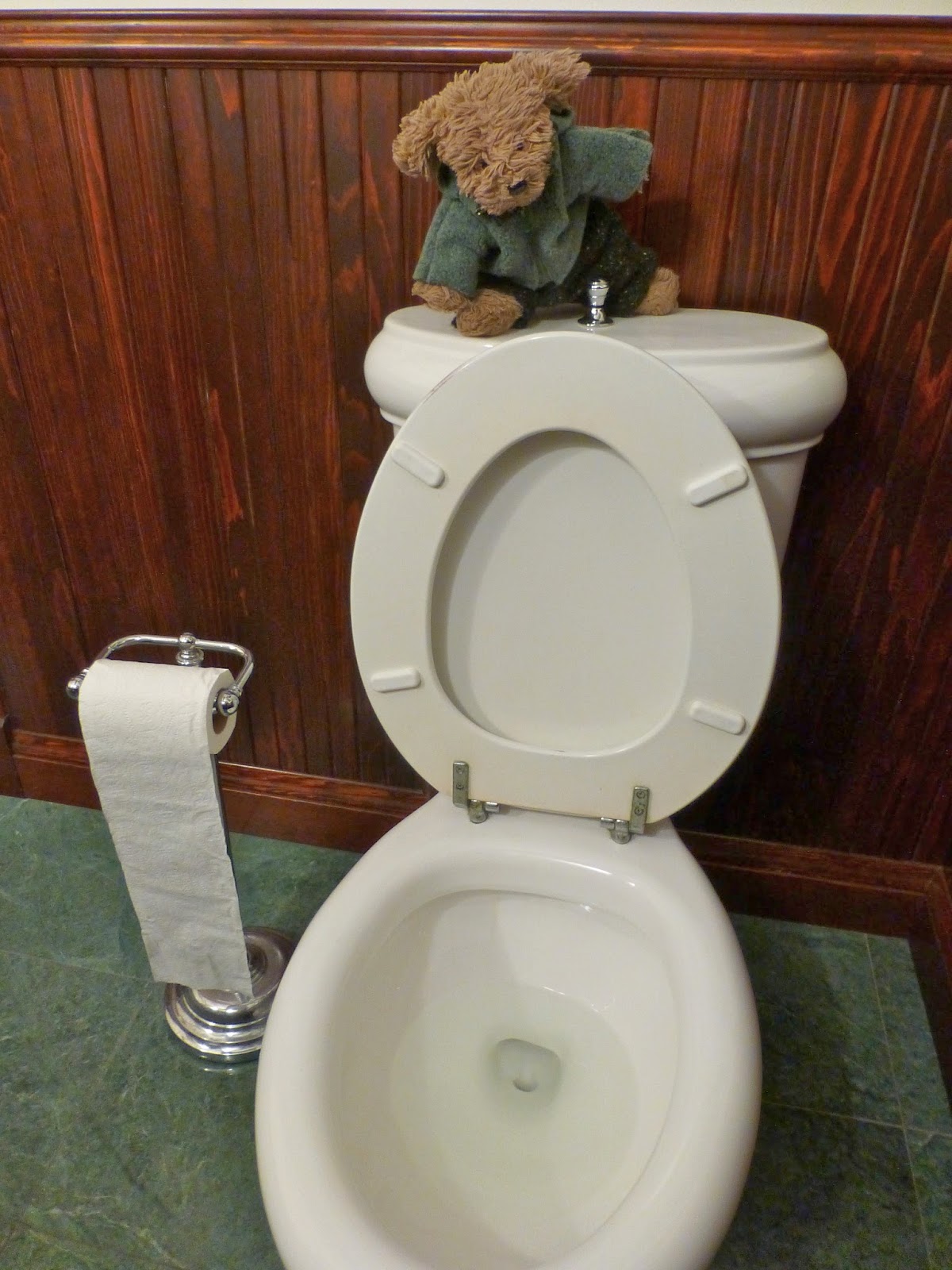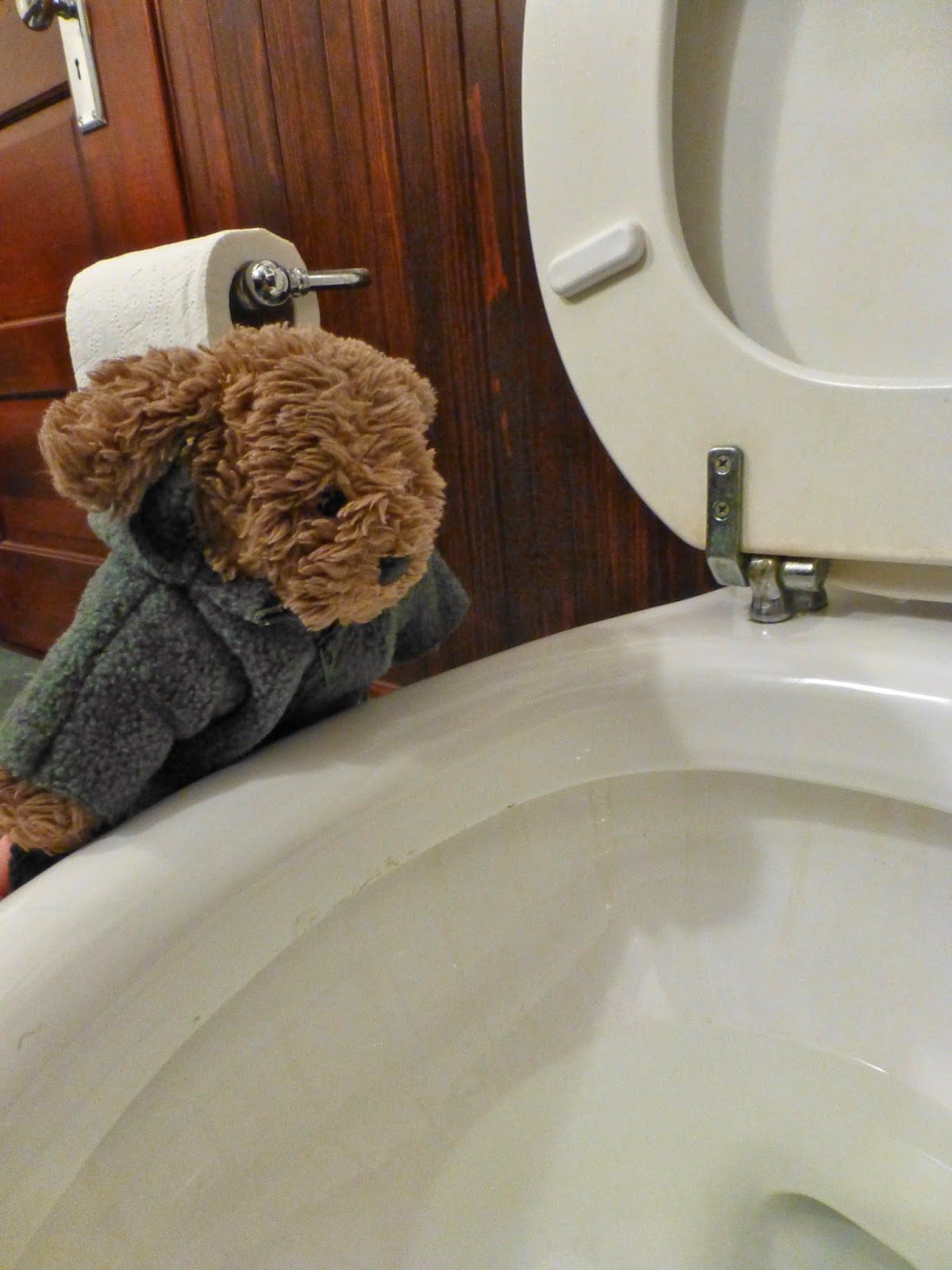London: A sewage worker has become an unlikely hero after taking three weeks to defeat a toxic 15-tonne ball of congealed fat the size of a bus that came close to turning parts of the London borough of Kingston upon Thames into a cesspit.
The fatberg, that enormous mass of congealed fat and paper products that recently threatened to overwhelm London’s sewer system, was not the first of its kind, nor, many say, will it be the last, or largest. As long as thirty years ago there were some that had warned about the eventuality of the fatberg. Theirs were lonely voices crying in the wilderness, but for the most part they went unheard, dismissed as cranks and worse. Only now are people beginning to pay attention; but not enough attention, some fear, and probably not in time.
“We’ve been predicting this,” said Dr. Xavier Draneau of the Institute for Sewer Alarmism, shaking his head, “but even now, not enough people are taking this threat seriously.”
Draneau, speaking at the Senate Select Subcommittee on Poop Outcomes, pointed out that the fatberg itself seemed like enough of an anomaly that it was hard to get people to put two and two together. “That’s human nature. It’s one thing to read about a fatberg accumulating below street level and out of sight of all but a small contingent of sewer workers, and it’s quite another to imagine spontaneous geysers of poop spurting out of your own toilet for eternity. The trouble is, faced with such a dire scenario, the average person refuses to imagine it will affect him personally. And thus, politically, it’s a hard sell.”
“It” is the complete ban of the sale of Wet Wipes. Wet wipes and similar convenient personal hygiene enhancement products are believed by 98% of the world’s sewer scientists to be the culprit in most of the serious sewer blockage. Their use has expanded exponentially from a few isolated customers with inflamed tissue issues to a much broader segment of society demanding ever higher standards of cleanliness. The sewer scientists pin the blame squarely on the powerful Wet Wipes industry and its successful advertising campaign to persuade the public of the natural wretchedness of its collective anus. The soothing nature of the product has quickly transformed it in the public eye from a luxury to an entitlement. Youngsters raised on Wet Wipes cannot imagine a world in which they never existed.
Industry spokesman Jess Crammit insisted its product was not to blame, citing, as evidence, an email purportedly leaked from a sewer scientist’s private account in which he referred to Wet Wipes users in a mocking tone. Observers of Congress agree that an outright ban has little traction in the Senate, and members of the House were all seen leaving the chamber with gift bags of Wet Wipes and perforated rolls of $100 bills. A whisper campaign on the internet insists that the government has plans in place to mobilize a crack team of Wipes-Source inspectors. In the face of an impasse, sewer activist Duke Conaway says he can sense the beginnings of what he hopes is a massive movement. In lieu of action on the legislative front, he says, there must be a new education effort to advise the population of the Wet Wipes threat. House leaders have indicated no objections as long as no public monies are expended.
Sit-ins are planned.
“One of the problems,” Conaway said, “is that the Wet Wipe industry has succeeded in being able to advertise their product as ‘flushable.’ We’re very concerned about that.”
Mr. Crammit countered that the product is, indeed, flushable. But “flushable,” says Conaway, “is not a precise legal term. My three-year-old son thinks overcoats are flushable. That doesn’t make it a good idea. Just because you can flush something doesn’t mean you should flush something. There’s a real disconnect in the public mind between the use of a product advertised as flushable and the catastrophic state of our sewer system. We’re living in a flushable society,” he went on, his voice straining higher, “where as long as something goes away where we can’t see it, we don’t have to worry about it. And now,” he said, beginning to whine in earnest, “thanks to the proposed Wet Wipes Protection Act, we can’t even get them to take ‘flushable’ off the label.”
“Nanny nanny boo boo,” explained Mr. Crammit.
Attention flicked to the side as a man lumbered up to the microphone and began to speak in a sludgy, deliberate, and yet oddly cheerful cadence. “There’s still time if we just switched to single-ply,” Al Gore said. Go to hell, America said, rolling all its eyes.


Your story and your word play are laugh out loud funny but even as I was using my single-ply tissue to wipe tears from my eyes, I couldn't help but think about our own sewer lines. We had to ban Wet Wipes and triple-ply toilet paper from our home because whatever they used to line those pipes is unraveling at an alarming rate. I've got videos (yes, multiples!!!!) of the slowly growing ridges and eruptions along the entire length of our sewer lines. It's not pretty and paper products get hung up on those bumps narrowing the free flow of crap from point A to B. Some day, it's going to cost us a small fortune to replace the lines so we suffer with single-ply. If our city's 300 year old lines are a mess, I can only imagine the horrors that lie under the streets of London.
Can you get those videos on Netflix? Hey, we don't even have a 300-year-old city, but there was a report this week that they're finding Wet Wipe embolisms in the sewer lines here.
"A sewage worker has become an unlikely hero after taking three weeks to defeat a toxic 15-tonne ball of congealed fat the size of a bus that came close to turning parts of the London borough of Kingston upon Thames into a cesspit."
What was Rush Limbaugh doing skulking around the London sewer system? I thought he took all his vacations in Puerto Plata.
Wasn't he supposed to be gone by now, somewhere they wouldn't make him have medical insurance?
I guess he's a "con a sewer" of foreign countries and can't stick to just one.
Ha Ha "con-a-sewer", that's a good one.
That septic system out my back window is looking mighty fine about now – as is the grass.
We had a clog in our septic system at the cabin. Tree roots and things growing right in it. Growing well, too.
Bidet!
Got one!
I like having a septic. My system, my responsibility. If it fails, it's my fault and my dollars will go to fix it. If I take care of it, I'm rewarded with a beautiful piece of biological magic.
I stand at my kitchen sink, looking out the window and washing dishes with the soap I made from the fat of the steer I had out there last year, and think about those microbes out there working for me, and all I have to pay them is poop. In return, the drain-field greens the grass that feeds the animals that make the super-safe for septic soap that goes back into it.
I love to sense my inclusion in the systems around me…even the septic.
Obviously, I need a life.
I should probably tell you at this time that when we uncovered my sister Margaret's septic tank and saw the accumulation–and realized that it was all pretty much Margaret's contribution–we knew it needed to be memorialized with a name. Everyone's personal septic tank contents should have a name. So hers was "Margrunt." Then we speculated about the rest of the family: Murr, Dave, Elizabeth, and Bobbie and Reed. And we got "Quagmurr," "David's Plopperfield," "Elizablech," and "Blobby and Reek."
Kat; that's a fantastic system you've got going there. There should be more of it. If only….
I'll call it my preciouts (precious and shits, get it?).
No no no. Has to be about your name. Katkaka?
You don't think I'll get mistook for Kafka?
Growing up in the country, with a septic tank, we never ever put anything down the toilet other than bodily products and TP. Our only problems arose when other females came to visit and didn't understand the rules!
I do find myself suspicious of other people's toilet paper use. "How much did you put down there?" I say, with an accusing tone.
A scientist friend once said to me "there is no more away to throw it!" Flushable or not.
I've heard that before. "There is no more 'away.'"
"We've been predicting this," said rather a lot of experts, shaking their heads, "but even now, not enough people are taking this threat seriously."
You have neatly summed up most of the big issues facing us.
Sigh.
And thank you.
Well, I'm not at all sure what to do about it all.
I'm in favour of banning the wipes. The company that makes them will find another way to make money.
Ya think?
"A crack team of wipes source inspectors…"
How do you come up with this stuff?
I have an unsavory side.
I made it as far as putting "two and two together" hahahahahaha
That's how it starts, all right…
The flushables are a problem; I've read similar stories elsewhere. I remember using a few when travelling with my babies, but not at home. I used a warm wet facecloth instead and dropped it in the soak bucket to be washed along with the terry towelling nappies.
Right now I have a dispenser canister of bleach soaked wet wipes used for wiping down the toilet, the label reads flushable, but I don't flush them. I wipe down the toilet then toss the wipe in the bin. I don't even use one every day, I think the container is close to a year old by now and still mostly full. I continue to use an old damp facecloth and drop it in the soak bucket just like I always have.
The biggest trouble with the wet wipes is they're so darn convenient and of course the "flushable" on the label.
Had to laugh at Dr Draneau…drano…ha ha
Anyone who cleans the toilet with that kind of regularity is my hero anyway.
I saw a sign that read,"If it hasn't been in your mouth, it shouldn't go in the toilet." Bubblegum, unfortunately, is the exception that proves the rule.
That's a disturbing saying somehow. I can't even open my mouth when I'm in a toilet. But I see their point.
I, um, got nuthin.' Too busy wondering why the government lets them put "flushable" on the package. Wait. You already covered that. Free samples and hundred-dollar bills.
Well, they DO go down. I guess that would be their point.
"If you didn't eat it or drink it first, don't put it in here!"
Heck. Some of the stuff I eat isn't flushable either.
What could you possibly eat that isn't flushable??
Well. I don't like to brag, but it's flushable if you bust it up with a stick first.
We are all going to be impacted by this situation.
Eww, you said impacted.
Yes. I did.
EWWWWW!